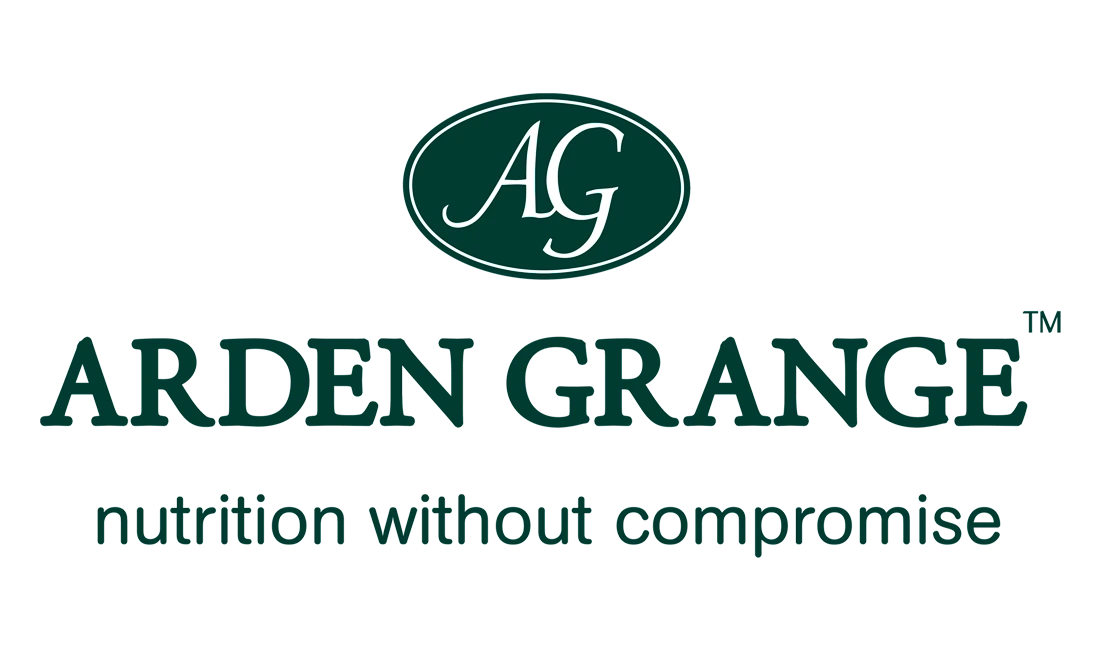Acid reflux in dogs
Acid reflux is the reverse-flow of stomach acid or intestinal fluids into the oesophagus (gullet) which causes painful inflammation of the mucosal lining. Chronic reflux is known as gastro-oesophageal reflux disease (GERD).
- Anaesthesia – Incorrect positioning can relax the gastro-oesophageal sphincter (the opening between the stomach and oesophagus), and not fasting beforehand can exacerbate reflux.
- Hiatal hernia – Usually congenital (a birth defect) and hereditary (e.g. in the British Bulldog and Shar Pei), although it can be acquired via injury. The obstructive, partially protruding stomach can impair or weaken the gastro-oesophageal sphincter’s ability to close.
- Weak oesophageal sphincter – Reflux is very common in babies. Puppies are vulnerable too because the sphincter is naturally laxer whilst it is still developing. This usually improves with maturity, but some adult dogs may not develop such an efficient mechanism as others.
- A higher than normal amount of gastrointestinal fluid production – This can result from stress, bacterial infection, feeding your dog spicy food or too much oily food. Stomach ulcers and cancer can also be causative since they increase the production of a hormone called gastrin which in turn increases acid production.
- Prolonged acid production – This can be caused by a diet which is too high in fibre because the food remains in the stomach for longer, and acid production continues until it is empty. - Accumulation of secreted acid in the stomach – This may be as a result of irregular meals or long periods between feeds.
- Vomiting – Although vomiting is often symptomatic of acid reflux, it can also be causative because of the damage it can inflict on the oesophagus. There are multiple conditions that manifest in vomiting including the ingestion of a caustic or toxic substance, oesophageal or intestinal foreign bodies, pancreatitis, megaoesophagus, protozoal parasites, cancer and food allergies. Repeated vomiting (or regurgitation) in dogs requires veterinary intervention so that underlying causes can either be ruled out (e.g. in the event of simple “hunger sickness”) or be diagnosed and treated appropriately. It is also important to bear in mind that inadequate acid production can result in similar symptoms to those of an excess. When a dog is infected with H. pylori, these bacteria secrete an enzyme called urease which converts urea to ammonia. The ammonia reduces the stomach acidity and this may be mistaken for acid reflux. Medicines intended for reflux can be harmful to dogs with insufficient gastric secretions. This is one reason why we do not recommend trying to treat the condition yourself using the various over-the-counter preparations intended for people. Furthermore, some products contain inappropriate ingredients for dogs (e.g. xylitol; an artificial sweetener which is toxic to canines) or have unsuitable nutrient values (e.g. too much calcium).
Bilious vomiting syndrome is caused by the leakage of bile into the stomach. Bile is produced in the liver, stored in the gall bladder, and released into the small intestine where it is involved with the digestion of fat. Bilious vomiting is typically associated with the dog having an empty stomach, but can also be associated with the consumption of a large volume of fatty food, spicy food or indigestible material (e.g. grass), or excessive water intake. Careful nutritional management is often successful in resolving the problem, but again, it is important to seek veterinary advice in order to rule out more serious conditions affecting the stomach, intestine and / or gastrointestinal motility. Medication may be necessary to alleviate the symptoms and help the dog feel more comfortable.
Symptoms of acid reflux may include vomiting or regurgitation of food, vomiting of bile, a high temperature, dysphagia (difficulty swallowing), excessive salivation / lip licking, bad breath, coughing / gulping / burping, abdominal noises and discomfort. Crying, adopting an unusual stance and inappetence may all be signs of pain. Prolonged inappetence can result in weight loss.
a diagnosis of acid reflux may often be confirmed by closely observing the symptoms (a video recording can be helpful for your vet since episodes are often sporadic and your dog may not be presenting typical signs at the time of the consultation) and listening to the chest for abnormal sounds after feeding. It is also a good idea to keep a note of the tim-ing of the symptoms in relation to the mealtimes, and if you feed a varied diet, details of which foods seem to worsen or improve matters. Your vet may want to take a blood sample (high calcium, low magnesium and low vitamin B12 are significant) and / or carry out an endoscopic examination. This involves passing a tiny camera down the oesophagus in order to visualise the mucosal lining and look for any irregularity to its surface or bleeding. Depending on the findings, further diagnostics may be needed since reflux may be symptomatic of an underlying medical condition.
In mild cases (particularly in situations whereby a dog is an irregular eater and vomiting bile when his stomach is empty) nutritional management and / or drug therapy may be employed first to determine whether careful dietary modification can help without the need for diagnostic measures.
A diagnosis of acid reflux may often be confirmed by closely observing the symptoms (a video recording can be helpful for your vet since episodes are often sporadic and your dog may not be presenting typical signs at the time of the consultation) and listening to the chest for abnormal sounds after feeding. It is also a good idea to keep a note of the tim-ing of the symptoms in relation to the mealtimes, and if you feed a varied diet, details of which foods seem to worsen or improve matters. Your vet may want to take a blood sample (high calcium, low magnesium and low vitamin B12 are significant) and / or carry out an endoscopic examination. This involves passing a tiny camera down the oesophagus in order to visualise the mucosal lining and look for any irregularity to its surface or bleeding. Depending on the findings, further diagnostics may be needed since reflux may be symptomatic of an underlying medical condition.
In mild cases (particularly in situations whereby a dog is an irregular eater and vomiting bile when his stomach is empty) nutritional management and / or drug therapy may be employed first to determine whether careful dietary modification can help without the need for diagnostic measures.
Medications used for the treatment of reflux include:
- Ranitidine (e.g. Zantac) – Typically used for stomach ulcers, and to treat internal inflammation and reduce stomach acidity by inhibiting the H2 receptor responsible for histamine release.
- Sucralfate (e.g. Antepsin) – Attaches to proteins excreted at ulcer/inflammatory sites and provides protection from the stomach acid.
- Omeprazole (e.g. Losec) – A proton pump inhibitor that reduces the amount of gastric acid. Whilst it is often considered the most effective medication for reflux, it does not agree with every dog, and is not suitable for long-term use.
- Metoclopramide – A gastrointestinal pro-kinetic agent that improves the movement of stomach contents through the intestines and also strengthens the gastroesophageal sphincter.
- Slippery elm (e.g. Dorwest Tree Barks Powder) – A natural remedy that has a soothing effect on the digestive tract. It is intended to slow the passage of food so should not be used in conjunction with medications such as metoclopramide which speed it up.
- Antibiotics – Administered in the event of bacterial infection if present.
- Probiotics – Helps to rebalance the gut bacteria, and supportive in the case of many digestive conditions (although not in the event of acute pancreatitis). More research is needed, but gut bacteria are increasingly being implicated in stress management, and probiotics may potentially help with both the cause and effect of reflux.
- Feeding a diet with reduced protein and fat levels such as the Arden Grange Light and / or Arden Grange Partners Sensitive canned food – Protein stimulates the secretion of the gastric acid, whilst fat decreases the strength of the muscle between the stomach and oesophagus.
- Feeding soft foods – The oesophagus may be sore and inflamed as a result of acid damage, so wet foods are preferable (particularly during early recovery). Dry food may be soaked with hot water for about ½ hour prior to serving to soften it. Soft food also eases the initial workload of the digestive enzymes, which can be beneficial for any dog with a compromised digestion.
- A review of feeding times – Smaller more frequent meals can be especially beneficial if a dog is vomiting bile as a result of having a very empty stomach. Large meals can exacerbate reflux because an overly full stomach places excessive pressure on the diaphragm, causing acid to travel upwards. Although an evening meal can be helpful in bridging the gap between teatime and breakfast, this meal should only be a small one because lying down can relax the oesophageal sphincter.
- Addressing inappetence – Irregular mealtimes can exacerbate reflux. Insufficient nutrition can also result in weight loss, constipation, loss of energy and dietary deficiencies. The chosen product therefore needs to be highly palatable. Do be wary of very concentrated dry foods however due to their typically higher fat content.
- Feeding a highly digestible, low residue diet – A diet which is highly fibrous can exacerbate reflux, but dogs do need a moderate level of fibre. It is best to avoid large amounts of fruit and vegetables even if pulped or well-cooked, and discourage grass eating. Diets such as Arden Grange that include beet pulp are a good option because they contain a good balance of soluble and insoluble fibre at a moderate level. Soluble fibre is used for the production of short-chain fatty acids (which supply energy to the friendly bowel flora) and to promote good gut motility, whilst insoluble fibre ensures an optimal transit time of food within the intestine.
- A review of treats and extras – This is important because many popular treats are high in fat (e.g. peanut butter used to stuff feeding toys and cheese / sausage used as high value training rewards). Lower fat alternatives might include the Arden Grange Light Crunchy Bites. Many dogs enjoy frozen treats in hot weather, but very cold food can cause an oesophageal spasm resulting in regurgitation, so icy edibles are best excluded from the menu of a dog with reflux. Conversely, very hot food can damage the oesophageal sphincter, so meals and treats should not be fed at heats that exceed body temperature.
- Address obesity – Being overweight can exacerbate reflux because fat can push the stomach forward and pressurise it.
- Assess the potential for adverse food reactions – Allergies and intolerance to particular ingredients may be significant. If your vet suspects that the current diet is causing or exacerbating acid reflux, a product with a novel carbohydrate and protein source (i.e. ones your dog has not eaten before) may be recommended.
As a responsible and ethical company, Arden Grange fully appreciates the caution that must be taken when discussing the potential benefits of nutritional supplements. It is against the law to make medical claims. Whilst these ingredients are safe and natural, and may be beneficial to some of the cats and dogs fed on Arden Grange, we must highlight that their inclusion is not a substitute for veterinary intervention in the case of a sick animal.


 Puppy
Puppy
 Adult
Adult
 Senior
Senior
 Sensitive
Sensitive
 Treats
Treats Kitten
Kitten
 Adult
Adult
 Senior
Senior
 Trusted British Brand
Trusted British Brand

